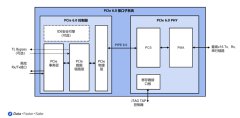US National Cancer Institute led Phase II clinical study met its primary objective with 36% confirmed ORR, and showed durable responses1
A new company-sponsored, global clinical trial will further assess berzosertib in small cell lung cancer
Merck is leading more than ten clinical trials across DNA Damage Response (DDR) pathways in various tumor types
DARMSTADT, Germany -- (BUSINESS WIRE) --
Merck, a leading science and technology company, today announced key clinical advancements for berzosertib (M6620), an investigational, potent and selective ataxia telangiectasia and Rad3-related (ATR) inhibitor. Berzosertib is the leading asset in the company’s DNA damage response (DDR) inhibitor program and one of the most advanced ATR inhibitors in oncology clinical development industry-wide.
Results from a Phase II proof-of-concept study conducted by the US National Cancer Institute (NCI) (NCT02487095)* and published in Cancer Cell showed that berzosertib in combination with the chemotherapy topotecan resulted in an objective response rate (ORR) of 36% among patients with relapsed small cell lung cancer (SCLC), including durable responses among a majority of responding patients with platinum-resistant disease.1 The NCI is also conducting a separate Phase II trial of berzosertib in combination with topotecan versus topotecan monotherapy in SCLC that has relapsed (NCT03896503)* which is currently the only randomized controlled trial of the combination in this population.
Merck also initiated a global Phase II study to further assess berzosertib in combination with topotecan for the treatment of relapsed, platinum-resistant SCLC (DDRiver SCLC 250). The first patient has been enrolled in the open-label, single-arm trial, which plans to include approximately 80 participants at about 41 study sites across Asia, Europe, and North America.
“Small-cell neuroendocrine cancers, including small cell lung cancer, are associated with very poor prognoses, and are a major clinical challenge with no effective therapeutic options. In this study, the combination of berzosertib and topotecan showed higher than expected response rates and durable responses in patients with platinum-resistant SCLC, highlighting the therapeutic potential of this combination for patients with this recalcitrant cancer type,” said Anish Thomas, MBBS, M.D., investigator and NIH Lasker Clinical Research Scholar at the Developmental Therapeutics Branch, Center for Cancer Research, National Cancer Institute, National Institutes of Health, Bethesda, MD, and lead investigator of the study. Dr. Thomas is collaborating with Merck KGaA, Darmstadt, Germany through a Cooperative Research and Development Agreement (CRADA).
Topotecan is the chemotherapeutic standard-of-care for second-line treatment of SCLC and is associated with low response rates, particularly in platinum-resistant disease.1 Findings from the NCI study highlight the vulnerability of SCLC tumors to ATR inhibition as a result of high levels of replication stress and the potential for the combination of berzosertib and topotecan to enhance the efficacy of topotecan among chemotherapy-resistant patients.1 These data build on earlier published results from Phase I of this study which also suggested a potential benefit of this combination in participants with platinum-resistant SCLC.2
“We are encouraged by these promising results, and are eager to further investigate berzosertib in a potentially registrational trial in SCLC as part of our front-running leadership in the research of DNA damage response,” said Danny Bar-Zohar, M.D., Global Head of Development for the Healthcare business sector of Merck.
These results are in addition to results from an NCI-sponsored open-label, randomized, Phase II study (NCI protocol 9944) evaluating berzosertib in combination with gemcitabine versus gemcitabine alone for the treatment of recurrent, platinum-resistant high-grade serous ovarian cancer, which were published in The Lancet Oncology in 2020. The study, conducted through a separate CRADA between NCI and Merck KGaA, Darmstadt, Germany, showed a benefit of adding berzosertib to gemcitabine in this treatment setting including improvement in progression-free survival, and is the first randomized study of an ATR inhibitor in any tumor type.3
As part of its new DDRiver™ Clinical Trials program, the company is investigating DDR inhibitor targeting pathways across more than ten trials in various tumor types.
NCI Study Results
In the Phase II single-arm study of berzosertib plus topotecan in patients with SCLC whose disease had progressed on prior therapy, 25 patients were evaluable for the primary endpoint of ORR as measured by Response Evaluation Criteria in Solid Tumors version 1.1 (RECIST 1.1), and the secondary endpoints of progression-free survival (PFS) and overall survival (OS) and duration of response (DOR). Berzosertib 210 mg/m2 was administered intravenously on days 2 and 5, and topotecan 1.25 mg/m2 was given intravenously on days 1 through 5 in 21-day cycles; treatment continued until disease progression.1
The confirmed ORR was 36% (95% CI, 18.0–57.5; all partial response).1 Most patients (68.0%) experienced tumor regressions.1 Responses were observed in patients with both platinum-sensitive (60.0% [95% CI, 14.7–94.7]) and platinum-resistant (30.0% [95% CI, 11.9–54.3]) disease.1 Median DOR was 6.4 months (95% CI, 1.1–14.3), and four of the six (66.7%) responders with platinum-resistant SCLC had DOR of more than 6 months.1 Median PFS was 4.8 months (95% CI, 2.8–7.4), with PFS rates at 4 months and 6 months of 60.0% (95% CI, 38.4-76.1) and 36.0% (95% CI, 18.2–54.2).1 Median OS was 8.5 months (95% CI, 5.6-13.6);1 OS rates at 6 months and 12 months were 68.0% (95% CI, 46.1–82.5) and 32.0% (95% CI, 15.2–50.2).1
Among 26 patients evaluable for safety, the most common treatment-related adverse events (AE) were anemia (96.2%), lymphopenia (96.2%), thrombocytopenia (92.3%), and neutropenia (50.0%), nausea (50.0%) and vomiting (42.3%).1 The most common grade 3 or 4 AEs were lymphopenia (69.2%), thrombocytopenia (57.7%), anemia (53.8%), and neutropenia (15.4%).1 No treatment-related deaths occurred.1 Most AEs were attributable to topotecan, which as monotherapy is associated with a high frequency of myelosuppression.1,4
*Additional information on these clinical trials are available at clinicaltrials.gov, through identifier numbers NCT02487095 and NCT03896503. Patients interested in enrolling in these berzosertib and topotecan combination clinical trials can call the National Cancer Institute’s toll-free number 1-800-4-Cancer (1-800-422-6237) (TTY: 1-800-332-8615).
About Small Cell Lung Cancer
Of the estimated 1.6 million new lung cancer cases diagnosed worldwide each year, approximately 15% are SCLC.5 SCLC is the most aggressive form of lung cancer, characterized by a rapid doubling time and widespread metastases,6 and approximately two-thirds of patients present with extensive disease that has metastasized, when first found.7 The median survival time for patients with SCLC is 7 months,5 and the relative five-year survival rate is just 7%.8
About Berzosertib
Berzosertib is an investigational, potent and selective inhibitor of the ataxia telangiectasia and Rad3-related (ATR) protein that blocks ATR activity in cells. Berzosertib is the first ATR inhibitor evaluated in a randomized clinical trial in any tumor type,3 and it is the lead candidate in Merck’s DNA Damage Response (DDR) inhibitor portfolio. It is currently being investigated in a number of internal and external studies with early phase I/II data in small cell lung cancer, ovarian cancer, and various solid tumors.3,9 Berzosertib, formerly known as VX-970, was licensed from Vertex Pharmaceuticals in 2017. Berzosertib is not approved for any use anywhere in the world.
References
- Thomas A, Takahashi N, Rajapakse V, et al. Therapeutic targeting of ATR yields durable regressions in small cell lung cancers with high replication stress. Cancer Cell 39, (4), 2021, pp.566-579.
- Thomas, A., Redon, C. E., Sciuto, L., Padiernos, E., Ji, J., Lee, M. J., Yuno, A., Lee, S., Zhang, Y., Tran, L., et al. (2018). Phase I Study of ATR Inhibitor M6620 in Combination With Topotecan in Patients With Advanced Solid Tumors. J Clin Oncol 36, 1594-1602.
- Konstantinopoulos PA, et al. Berzosertib plus gemcitabine versus gemcitabine alone in platinum-resistant high-grade serous ovarian cancer: a multicentre, open-label, randomised, phase 2 trial. Lancet Oncol. 2020 Jul;21(7):957-968. doi: 10.1016/S1470-2045(20)30180-7. Epub 2020 Jun 15. PMID: 32553118.
- von Pawel, J., Schiller, J. H., Shepherd, F. A., Fields, S. Z., Kleisbauer, J. P., Chrysson, N. G., Stewart, D. J., Clark, P. I., Palmer, M. C., Depierre, A., et al. (1999). Topotecan versus cyclophosphamide, doxorubicin, and vincristine for the treatment of recurrent small-cell lung cancer. J Clin Oncol 17, 658-667.
- Wang S, et al. Survival changes in patients with small cell lung cancer and disparities between different sexes, socioeconomic statuses and ages. Sci Rep. 2017;(1):1339.
- Byers LA, Rudin CM. Small cell lung cancer: where do we go from here? Cancer. 2015;121(5):664-72.
- American Cancer Society. Small Cell Lung Cancer Stages. https://www.cancer.org/cancer/lung-cancer/detection-diagnosis-staging/staging-sclc.html. (Accessed April 8, 2021).
- American Cancer Society. Lung Cancer Survival Rates. https://www.cancer.org/cancer/lung-cancer/detection-diagnosis-staging/survival-rates.html (Accessed April 8, 2021).
- Yap TA, et al. Phase I Trial of First-in-Class ATR Inhibitor M6620 (VX-970) as Monotherapy or in Combination With Carboplatin in Patients With Advanced Solid Tumors. J Clin Oncol. 2020 Sep 20;38(27):3195-3204. doi: 10.1200/JCO.19.02404. Epub 2020 Jun 22. PMID: 32568634; PMCID: PMC7499606.
All Merck Press Releases are distributed by e-mail at the same time they become available on the Merck Website. Please go to http://www.merckgroup.com/subscribe to register online, change your selection or discontinue this service.
About Merck
Merck, a leading science and technology company, operates across healthcare, life science and electronics. Around 58,000 employees work to make a positive difference to millions of people’s lives every day by creating more joyful and sustainable ways to live. From advancing gene editing technologies and discovering unique ways to treat the most challenging diseases to enabling the intelligence of devices – the company is everywhere. In 2020, Merck generated sales of € 17.5 billion in 66 countries.
Scientific exploration and responsible entrepreneurship have been key to Merck’s technological and scientific advances. This is how Merck has thrived since its founding in 1668. The founding family remains the majority owner of the publicly listed company. Merck holds the global rights to the Merck name and brand. The only exceptions are the United States and Canada, where the business sectors of Merck operate as EMD Serono in healthcare, MilliporeSigma in life science, and EMD Electronics.
View source version on businesswire.com: https://www.businesswire.com/news/home/20210412005678/en/
CONTACT:
Media Relations
Julissa Viana
julissa.viana@emdserono.com
Phone: +1 781 206 5795







